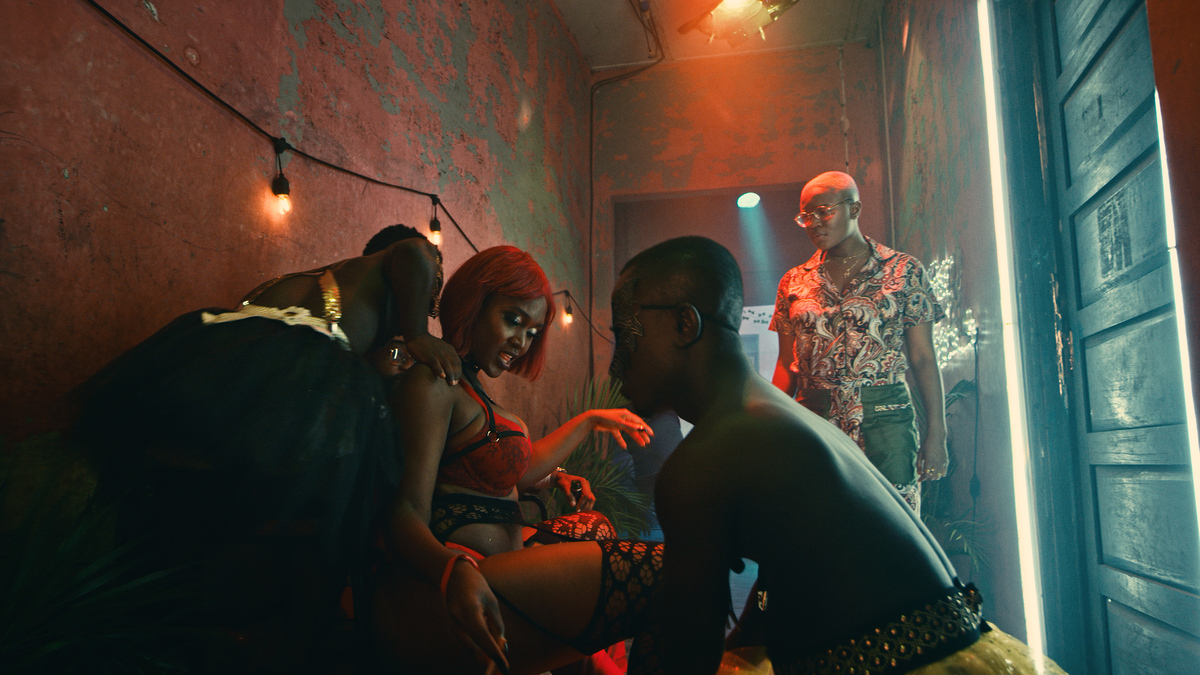Is there a secret to longevity? This health expert says 1,000% yes
In the era of social media, post-COVID, and with mental health at the forefront, a shift is taking […]

Living as a Lesbian, Gay, Bisexual, Transgender, Queer (LGBTQ) or intersex person in Ghana has always been considered illegal, however, no one has ever been prosecuted for belonging to a minority group.
The dynamics shifted in 2021 when the National Coalition for Proper Sexual Human Rights and Family Values, led by the Member of Parliament for Ningo-Prampram, Sam Nartey George, introduced the ‘Proper Human Sexual Rights and Ghana Family Values Bill’ to parliament.
In July 2023, Ghana’s Parliament approved a stringent “anti-gay” legislation, officially named the “2021 Promotion of Appropriate Sexual Rights and Family Values Bill.” The bill, unanimously endorsed by 275 members of Parliament, aimed to reinforce existing laws against the LGBTQ+ community. It intended to criminalize the promotion and advocacy of homosexuality, along with the acts themselves. The proposed law increases penalties, including up to ten years of imprisonment for LGBTQ+ advocates and three years for individuals identifying as such, and sought to withhold health services, including vital medications for conditions such as HIV.
Human Rights Watch reported that these MPs are ignoring “Ghana’s secular status and African principles such as ubuntu, dignity, equality, non-discrimination, empathy, protection from violence and care for each other. These African principles have shaped Ghana’s independence struggles and continue to contribute to the consolidation of a democratic state”.
Sam George and eight other Members of Parliament from the National Democratic Congress party and the New Patriotic Party were pushing to get the tougher anti-LGBT bill passed before the year’s end.
The bill, under increasing scrutiny from human rights activists on the continent and beyond, does not only affect and incriminate the activities of members of the LGBTQ+ community in Ghana, it would also have detrimental effects on persons outside the community and on trade.
Here are ways Ghana’s anti-gay bill would affect persons outside the community when the bill is passed into legislation, as teased out from the anti-gay bill currently before parliament:
Infringement on press freedom:
The bill, if passed into law, will place major restrictions on what the press can and cannot publish, be it private media or state media, as the bill prohibits the publication of LGBTQ+ content, including publishing about crime against LGBTQ+, or publishing health reports on LGBQT+. This also includes publication on social media. Pressmen who would publish LGBTQ+ related content risk a prison term of three or more years.
‘Duty to report’:
Ghana’s anti-gay bill has a component dubbed “Duty to Report.” This provision implies and charges all well-meaning citizens to report all persons within the LGBTQ+ community to the police and authorities.
This does not only affect members of the LGBTQ+ community, as the bill also requires persons who are suspected of being members of the community to be reported.
Failure to do so would mean one is condoning the activities of the community and will be liable to the same or similar punishment as the practitioner.
In simple terms, a mother whose son behaves ‘girlish’ may be arrested and prosecuted for failing to report their child.
Due to excess testosterone and androgens, this provision may be the source of mob action against boys and girls who have more features of the opposite sex.
This also means that comedians can no longer cross-dress, and people cannot do normal things like same-gender walking and holding hands, nor putting arms across each other’s shoulders or waists, as such may be seen as indecent exposure and classified by some as ‘gay’.
Preventing the full expression of sexual freedoms:
The bill prevents both LGBTQ+ members and heterosexuals from fully expressing their sexual freedoms.
Ghana’s anti-gay bill will prohibit and criminalise all unnatural carnal knowledge between sexual partners. This provision does not only affect members of the LGBTQ+ community but all other persons.
The bill, if passed into law, would prosecute heterosexuals/cisgenders who use sex toys and explore other sexual fantasies the legislation may deem unnatural.
Members of the parliamentary select committee that was tasked to analyse the bill are yet to present their final report to the house for voting. However, the Speaker has promised the bill would either be passed by the house or rejected before March, 2024.
Author: Contributor Elliot Nuertey

In the era of social media, post-COVID, and with mental health at the forefront, a shift is taking […]

With its fast speeds and revolutionary potential, 5G stands out as a noteworthy milestone in the field of […]